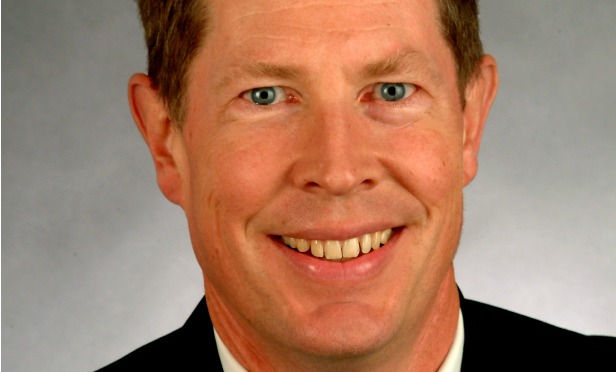
LOS ANGELES—Commercial real estate is often accused of its failure to evolve. In an earlier story, Locke and Lord LLP partner Kathleen Smalley said that much of the industry's hesitation to move forward derives from its local roots. Smalley had called for uniformity in real estate finance law, sparking a debate in the industry about the evolution of real estate finance law and the need for modernization. While Steve Lieske, a partner at Allen Matkins, took the opposing position, he made clear that Smalley's novel and forward-thinking perspective was both refreshing and essential for the future of the industry.
“I think that this type of thinking is critical to the future of real estate lending, and I think it is critical to the future and viability of the legal profession,” Lieske tells GlobeSt.com. “We as lawyers and law firms have to look for ways to make the process and the product better for our clients, whether our client is the lender or the borrower.”
The idea to create more uniformity in real estate finance law is a new idea, and while Lieske disagrees with the need for more uniformity, he thinks the idea is novel. “This is the first time that I have heard this come up with respect to finance law, and I regard this as novel,” he says. “I really like how she is thinking. Maybe in ten years we will look back and say that Kathleen was the catalyst that changed the industry.”
Real estate finance law could accomplish uniformity, however. “Finance law lends itself to creating uniform laws, but I don't think there is enough benefit here to do it,” explains Lieske. “When you think about the requirements for a loan, the documents are virtually the same, and although there are certainly differences state-by-state, the differences aren't that dramatic and it isn't that difficult to deal with the differences. If we do a deal outside of California, we simply engage local counsel. That is never a difficult process, or a costly or time-consuming review.”
Lieske, however, was inspired to look for ways to improve the industry. He believes that standardizing loan documents would have bigger benefits for the industry and would be more feasible overall.

LOS ANGELES—Commercial real estate is often accused of its failure to evolve. In an earlier story,
“I think that this type of thinking is critical to the future of real estate lending, and I think it is critical to the future and viability of the legal profession,” Lieske tells GlobeSt.com. “We as lawyers and law firms have to look for ways to make the process and the product better for our clients, whether our client is the lender or the borrower.”
The idea to create more uniformity in real estate finance law is a new idea, and while Lieske disagrees with the need for more uniformity, he thinks the idea is novel. “This is the first time that I have heard this come up with respect to finance law, and I regard this as novel,” he says. “I really like how she is thinking. Maybe in ten years we will look back and say that Kathleen was the catalyst that changed the industry.”
Real estate finance law could accomplish uniformity, however. “Finance law lends itself to creating uniform laws, but I don't think there is enough benefit here to do it,” explains Lieske. “When you think about the requirements for a loan, the documents are virtually the same, and although there are certainly differences state-by-state, the differences aren't that dramatic and it isn't that difficult to deal with the differences. If we do a deal outside of California, we simply engage local counsel. That is never a difficult process, or a costly or time-consuming review.”
Lieske, however, was inspired to look for ways to improve the industry. He believes that standardizing loan documents would have bigger benefits for the industry and would be more feasible overall.
Want to continue reading?
Become a Free ALM Digital Reader.
Once you are an ALM Digital Member, you’ll receive:
- Breaking commercial real estate news and analysis, on-site and via our newsletters and custom alerts
- Educational webcasts, white papers, and ebooks from industry thought leaders
- Critical coverage of the property casualty insurance and financial advisory markets on our other ALM sites, PropertyCasualty360 and ThinkAdvisor
Already have an account? Sign In Now
*May exclude premium content© 2025 ALM Global, LLC, All Rights Reserved. Request academic re-use from www.copyright.com. All other uses, submit a request to [email protected]. For more information visit Asset & Logo Licensing.








